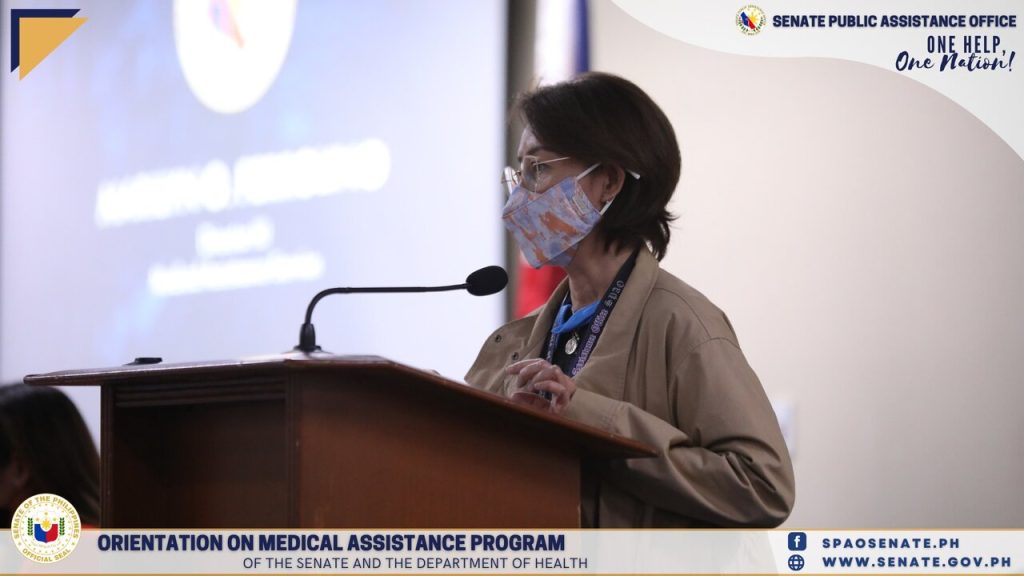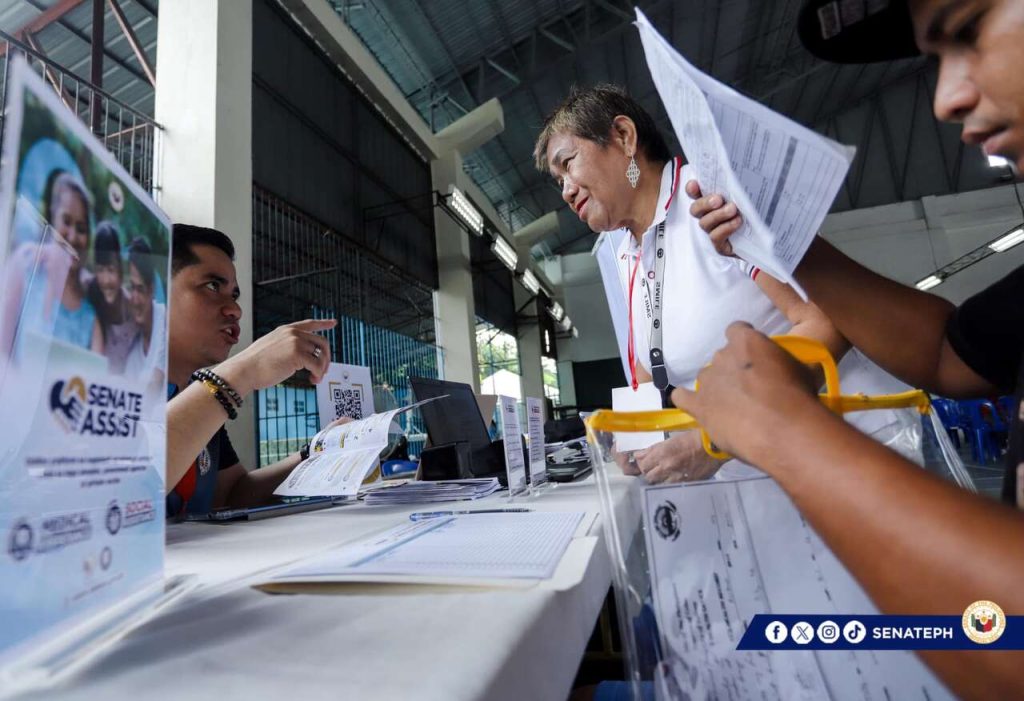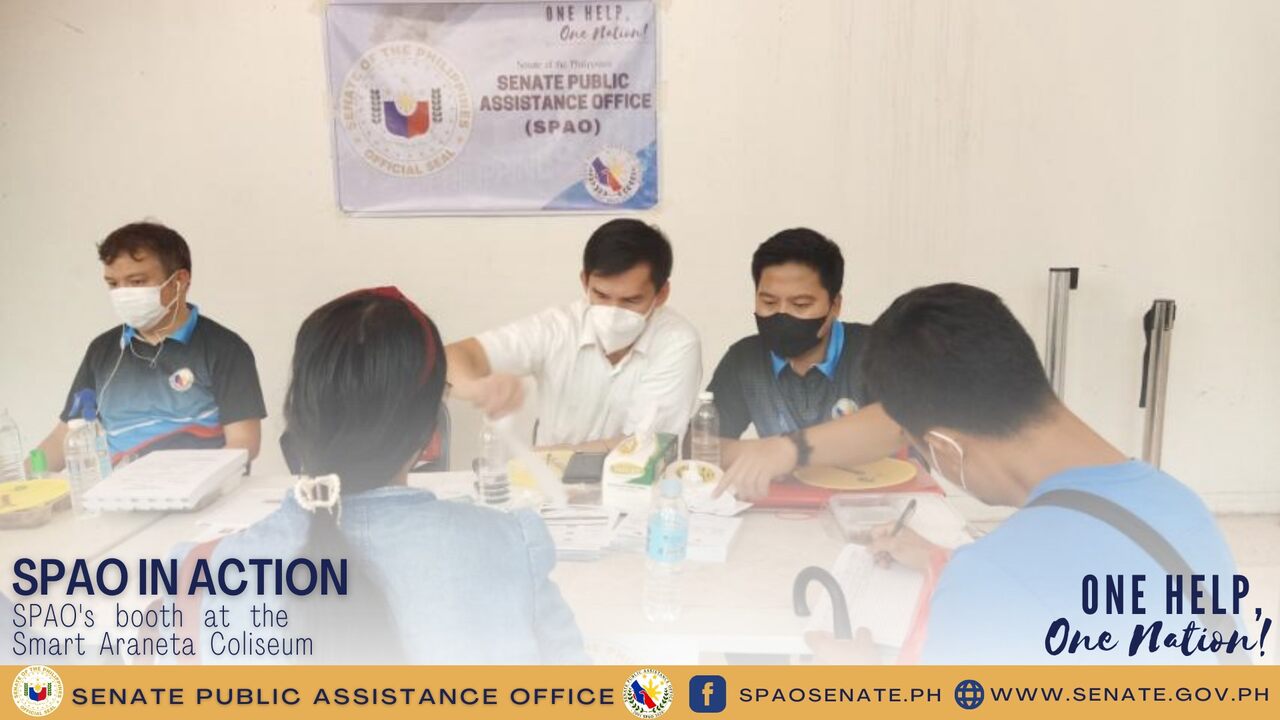The Senate Public Assistance Office (SPAO) Medical Assistance Service (MAS) Program is a vital initiative offering help to Filipinos with their medical and hospital expenses. This program, managed by the Senate of the Philippines, provides support to indigent patients through the issuance of guarantee letters for use in public and Department of Health (DOH)-affiliated hospitals, as well as in some private institutions in the Philippines.
Understanding how to apply for the SPAO MAS program can help you navigate medical costs more efficiently. Whether for hospital bills, medicines, or treatments, this program ensures timely aid to those in need, especially during challenging times.
SPAO MAS Program Features and Benefits

This medical assistance initiative under the Senate Public Assistance Office was created to support Filipinos who are struggling with medical expenses. It allows individuals to request financial help for medical bills, medicines, and treatments by submitting specific requirements. Once approved, beneficiaries are provided with a Guarantee Letter (GL) that serves as a payment commitment for their hospital-related expenses. Some of the most notable features and benefits offered by this program include:
Features
- Comprehensive Medical Support
- Offers assistance for hospital bills, medicines, and medical procedures in both DOH and non-DOH hospitals.
- Provides access to essential medical care for indigent patients in public hospitals nationwide.
- Wide Coverage of Hospitals
- Includes more than 70 DOH hospitals across the Philippines and selected private hospitals.
- Assists patients in renowned institutions like the Philippine Heart Center, National Kidney and Transplant Institute, and more.
- Multiple Application Channels
- Applications can be submitted online, via email, or through designated drop boxes at the Senate entrance gate.
- Allows applicants to choose the most convenient submission method for their needs.
- Collaboration with Senators’ Offices
- Each Senator’s office participates in the program, offering targeted medical assistance through dedicated email channels.
- Streamlines support by connecting beneficiaries with specific offices.
- Guarantee Letter System
- Issues Guarantee Letters (GLs) that directly cover hospital expenses and medicines.
- GLs are valid until December 31 of the year they are issued, ensuring efficient use within a defined timeframe.
- Online Accessibility
- Features an online platform for downloading forms, submitting requirements, and checking updates on applications.
- Accessible anytime, providing a convenient option for remote applicants.
- Social Case Study Requirement
- Evaluates the applicant’s financial capacity through a mandatory social case study.
- Ensures that assistance is provided to those who genuinely need it.
- Senate Assist Roadshows
- Hosts events like the Senate Assist Roadshow to provide on-the-spot assistance and promote program awareness.
- Expands the reach of the program by directly engaging with communities.
- Dedicated Support Services
- Provides clear communication channels via email, phone, and on-site inquiries.
- Ensures applicants receive guidance throughout the application process.
- Free and Transparent Process
- No fees are required for medical assistance applications.
- Maintains transparency and accountability by processing requests fairly.
Benefits
- Financial Relief for Indigent Patients: Covers a significant portion of hospital bills, medicines, and treatments, reducing the financial burden on low-income families.
- Improved Access to Healthcare: Extends medical assistance to underserved communities, ensuring access to life-saving treatments and procedures.
- Streamlined Application Process: Simplifies the process of requesting aid with an online platform, minimizing delays and making applications accessible to all.
- Personalized Assistance: Direct coordination with Senators’ offices ensures tailored support based on each applicant’s specific needs.
- Nationwide Reach: With its extensive hospital network and online application options, the program supports patients across the country.
- Quick Response to Urgent Needs: Guarantee Letters expedite payments for hospital expenses, allowing patients to receive immediate care.
- Flexibility in Application: Multiple submission options—email, drop box, or in-person—cater to applicants with varying levels of access to technology.
- Community Engagement Through Roadshows: Promotes health awareness and provides immediate aid during roadshows in different provinces.
- Sustainability of Assistance: Assistance is renewable every three months, enabling continued support for patients with long-term medical needs.
- Transparency and Fairness: Thorough documentation and evaluation processes guarantee that aid is allocated to deserving beneficiaries.
List of DOH Hospitals
Some notable DOH hospitals where SPAO assistance is applicable include:
- Adela Serra Ty Memorial Medical Center
- Alligiant Regional Care Hospital Inc. (ARC)
- Amai Pakpak Medical Center
- Amang Rodriguez Memorial Medical Center
- Baguio General Hospital and Medical Center
- Barrios-Businos Medical Clinic and Hospital
- Basilan General Hospital
- Bataan General Hospital and Medical Center
- Batanes General Hospital
- Batangas Medical Center
- Bicol Medical Center
- Bicol Regional General Hospital and Geriatric Medical Center
- Bicol Regional Hospital and Medical Center
- Bicol Regional Hospital and Medical Center
- Cagayan Valley Medical Center
- Camiguin General Hospital
- Caraga Regional Hospital
- Cebu South Medical Center
- Clarin District Hospital
- Conner District Hospital
- Conrado F. Estrella Regional Medical & Trauma Center
- Corazon Locsin Montelibano Memorial Regional Hospital
- Cotabato Regional and Medical Center
- Cotabato Sanitarium
- Culion Sanitarium
- Culion Sanitarium General Hospital
- Davao Occidental General Hospital
- Davao Regional Medical Center
- De La Salle University Medical Center
- Don Emilio Del Valle Memorial Hospital
- Don Jose S. Montfort Medical Center Extension Hospital
- Dr. Jose Fabella Memorial Hospital
- Dr. Jose N. Rodriguez Memorial Hospital & Sanitarium
- Dr. Jose Rizal Memorial Hospital
- Dr. Paulino J. Garcia Memorial Research and Medical Center
- East Avenue Medical Center
- Eastern Visayas Medical Center
- Eversley Childs Sanitarium and General Hospital
- Far North Luzon General Hospital & Training Center
- First Misamis Oriental General Hospital
- Gov. Benjamin and Schistosomiasis Hospital
- Governor Celestino Gallares Memorial Medical Center
- Grace General Hospital
- Ilocos Sur Medical Center
- Ilocos Training Regional & Medical Center
- Joni Villanueva General Hospital
- Jose B. Lingad Memorial General Hospital
- Jose R. Reyes Memorial Medical Center
- Justice Jose Abad Santos General Hospital
- Kidapawan Medical Specialists Center, Inc.
- Labuan General Hospital
- Las Piñas General Hospital and Satellite Trauma Center
- Lu Clinic and Hospital
- Luis Hora Memorial Regional Hospital
- Lung Center of the Philippines
- Margosatubig Regional Hospital
- Maria L. Eleazar General Hospital
- Mariano Marcos Memorial Hospital & Medical Center
- Marikina Doctors Hospital and Medical Center
- Mariveles Mental Hospital
- Mariveles Mental Wellness and General Hospital
- Mayor Hilarion A. Ramiro’s Sr. Medical Center
- Mindanao Central Sanitarium
- National Center for Mental Health
- National Children’s Hospital
- National Kidney and Transplant Institute
- Northeastern Misamis General Hospital
- Northern Mindanao Medical Center
- Ospital ng Palawan
- Our Lady Of Caysasay Medical Center
- Philippine Children’s Medical Center
- Philippine General Hospital
- Philippine Heart Center
- Philippine Orthopedic Center
- Quirino Memorial Medical Center
- Region I Medical Center
- Region II Trauma Medical Center
- Research Institute for Tropical Medicine
- Rizal Medical Center
- Saint Anthony Mother and Child Hospital
- San Lazaro Hospital
- San Lorenzo Ruiz Womens Hospital
- Sandig Medical Clinic and Hospital
- Sarangani Provincial Hospital-Alabel
- Schistosomiasis Hospital
- Siargao Island Medical Center
- SOCCSKSARGEN General Hospital
- Southern Isabela General Hospital
- Southern Isabela Medical Center
- Southern Philippines Medical Center
- Southern Tagalog Regional Hospital
- St. Anthony Mother and Child Hospital
- Sta. Maria Josefa Hospital Foundation Inc.
- Sulu Sanitarium
- Sunga Hospital Digos City Davao
- Talavera General Hospital
- Talisay District Hospital
- The Hospital at Maayo (Mandaue)
- Tondo Medical Center
- Valenzuela Medical Center
- Vicente Gullas Memorial Hospital Inc.
- Vicente Sotto Memorial Medical Center
- Western Visayas Medical Center
- Western Visayas Sanitarium
- Zamboanga City Medical Center
Target Beneficiaries
The SPAO MAS Program was created to provide medical support to Filipinos in need, particularly those facing financial challenges and limited access to healthcare, such as:
- Indigent Patients – Individuals and families classified as below the poverty line who cannot afford medical treatments.
- Senior Citizens – Elderly individuals requiring financial aid for healthcare and medicines.
- Persons with Disabilities (PWDs) – People with physical or mental disabilities needing specialized medical attention.
- Unemployed Individuals – Those without stable income or access to healthcare benefits.
- Disadvantaged Women and Children – Vulnerable mothers, infants, and children in need of medical care and assistance.
- Hospitalized Individuals with Severe Illnesses – Patients diagnosed with chronic or critical diseases such as cancer or organ failure.
- Victims of Calamities – Individuals affected by natural disasters, requiring medical treatment due to injuries or illnesses.
- Rural and Remote Area Residents – People living in underserved regions with limited access to healthcare facilities.
- Informal Sector Workers – Laborers without regular employment benefits, such as vendors and small-scale farmers.
- Patients in DOH-Accredited and Non-DOH Hospitals – Beneficiaries receiving treatment in government or private healthcare facilities covered by the program.
This inclusive approach ensures that assistance reaches the most vulnerable and underserved sectors of society.
Eligibility
To even be eligible for the SPAO MAS Program, applicants must at least meet these basic qualifications:
- Patients in DOH Hospitals: The assistance is limited to individuals receiving treatment in DOH or public hospitals.
- Indigent Individuals: The program prioritizes underprivileged Filipinos in need of financial help for medical concerns.
Requirements
Interested applicants are also required to provide the following documents to apply and complete their application:
- Personal Letter: Write a letter addressed to the Senator whose office you are seeking assistance from.
- Medical Certificate or Clinical Abstract: This outlines the patient’s medical condition and treatment.
- Quotation of Hospital Bills or Medicines: Provide an official cost estimate for the assistance needed.
- Identification Cards: Copies of valid IDs for both the patient and their representative.
- Social Case Study Report: Issued by a social worker, this document confirms the applicant’s financial status.
- Completed SPAO Medical Assistance Form: Downloadable from the SPAO website or provided by their office.
Note: Incomplete or unclear submissions may result in delays or requests for resubmission.
Application Process
To apply for the program, simply follow these steps:
Online via Email
Step 1. Prepare all required documents, including a valid ID, medical abstract, prescriptions, and hospital billing statements.
Step 2. Write an email with the subject line: “SPAO MAS Application – [Your Name].”
Step 3. Attach clear scanned copies of all necessary documents to the email.
Step 4. Send the email to the official SPAO MAS email address provided by the Senate: medicalprivate.spaosas@gmail.com (for private and non-DOH hospitals) or to the senator’s designated email address. For example:
- Senator Nancy Binay: spao_mas.osbinay@yahoo.com
- Senator Risa Hontiveros: senhontiveros.conrel1@gmail.com
Step 5. Wait for a confirmation email containing instructions or updates about your application status.
Online via SenateAssist
Step 1. Visit the official SenateAssist website or application portal.
Step 2. Complete the online application form by providing your personal details and medical information.
Step 3. Upload scanned copies of the required documents.
Step 4. Submit your application and note the reference number provided for tracking.
Step 5. Regularly monitor your email and other contact information for updates or feedback regarding your application.
Walk-In Application
Step 1. Go to the Senate Public Assistance Office (SPAO) during office hours.
Step 2. Bring original and photocopies of all necessary documents, such as valid ID, medical certificates, and hospital statements.
Step 3. Fill out the application form provided by the SPAO staff.
Step 4. Submit your form and documents to the designated officer for review.
Step 5. Wait for the officer to verify your application and provide guidance on the next steps.
Step 6. Follow up with the office, if necessary, for updates regarding your request.
Application via Dropbox
Step 1. Prepare photocopies of all required documents along with a completed application form (available at SPAO or online via this link: https://legacy.senate.gov.ph/SAS%20Form%20as%20of%209.25.2023.png).
Step 2. Place all documents in an envelope labeled with your name, contact details, and “SPAO MAS Application.”
Step 3. Drop the envelope into the designated SPAO MAS Dropbox at the Senate entrance gate.
Step 4. Ensure you note the time and date of your submission for tracking purposes.
Step 5. Wait for a text or call from the SPAO regarding the review and status of your application.
These methods provide accessible options to suit different preferences and situations of applicants.
Guarantee Letter and Assistance Details
How the Guarantee Letter Works
Once approved, the applicant will receive a Guarantee Letter (GL) that serves as a payment assurance for medical services. The letter is sent directly to the hospital and is non-transferable. It cannot be exchanged for cash and is valid until December 31 of the year it is issued.
Example:
- Date Issued: May 7, 2024
- Validity: Until December 31, 2024
Common Reasons for Resubmission
Applications may be flagged for resubmission due to the following reasons:
- Incomplete or incorrect documents.
- Blurred or expired ID copies.
- Missing pages in submitted files.
Note: Make sure that all forms and supporting papers are complete before submission to avoid delays.
Senate Assist Program Expansion

The Senate Assist platform integrates various social services, including SPAO MAS, making medical assistance more accessible to the public. Recently, roadshows like the Cebu City event highlighted the Senate’s efforts to simplify and expand its services.
This digital initiative allows applicants to access resources from senators, government agencies, and health institutions. For more information, visit the Senate Assist website at assist.senate.gov.ph.
SPAO MAS Program Achievements
The Senate Public Assistance Office has made significant contributions to providing medical aid. In 2021 alone, the program supported 36,997 patients nationwide. Among the institutions that benefited were:
- National Kidney and Transplant Institute: 11,514 patients assisted.
- Philippine Heart Center: 11,376 patients supported.
- East Avenue Medical Center: 1,831 patients assisted.
During the COVID-19 pandemic in 2020, the Senate expanded its services by introducing online applications, benefiting 21,755 individuals.
Frequently Asked Questions (FAQs)
For your reference, here are some of the most common questions and answers related to the SPAO MAS Program:
1. Can the guarantee letter be converted to cash?
No. The Guarantee Letter is issued directly to the hospital or pharmacy to cover medical costs.
2. When can you reapply?
If you’ve received assistance, you may submit a new request three months after your previous Guarantee Letter’s issuance date.
3. Is there a fee to apply?
No. The SPAO MAS Program is free of charge.
Video: Using the SPAO SenateAssist Platform
The Senate Public Assistance Office (SPAO) Medical Assistance Service (MAS) Program continues to support indigent Filipinos by providing financial aid for medical treatments and hospital bills. This program highlights the Senate’s dedication to addressing healthcare needs nationwide, helping thousands of patients annually. By following the outlined steps listed above, applicants can apply online or through a physical drop box, ensuring faster processing. If you or someone you know requires assistance, take advantage of the SPAO MAS Program and its convenient application process via the new online platform, SenateAssist. You may learn how to use SenateAssist better by watching this video below:
